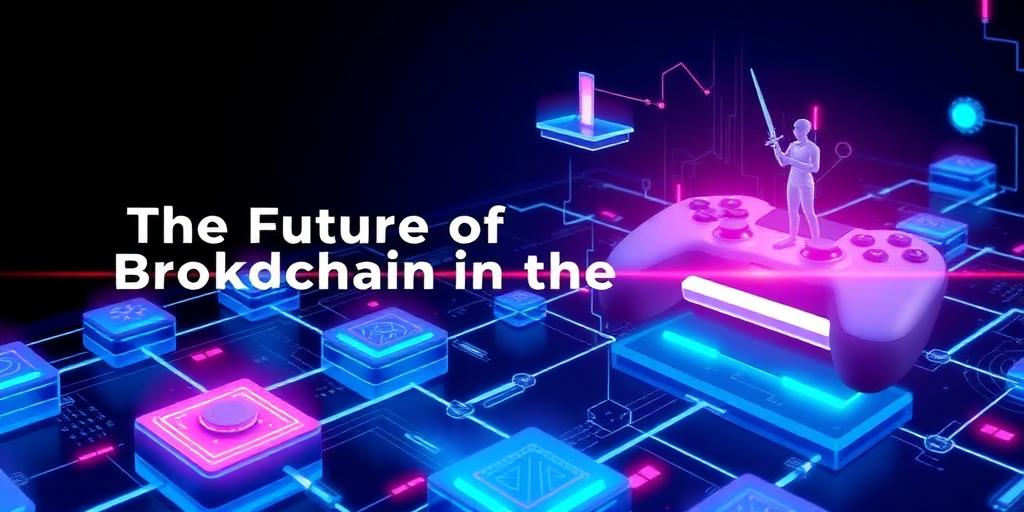The gaming industry, a powerhouse of innovation and entertainment, stands on the cusp of another profound transformation, driven by the emergent capabilities of blockchain technology. While initial applications have faced scrutiny and challenges, a deeper analysis reveals that blockchain is not merely a fleeting trend but a fundamental shift poised to redefine digital ownership, economic models, and player engagement within gaming. Understanding this trajectory requires moving beyond the hype to a more nuanced examination of its underlying value propositions.
The Foundations of a New Gaming Paradigm
At its core, blockchain introduces decentralization and verifiable scarcity—principles that directly address long-standing limitations in traditional gaming. For decades, players have invested countless hours and significant capital into acquiring in-game assets, only to find their ownership tethered to centralized servers controlled by game developers. Should a game cease operations, these digital possessions often vanish. This is where the future of blockchain gaming truly begins to shine.
With blockchain, in-game assets, often represented as Non-Fungible Tokens (NFTs), become the verifiable property of the player. This paradigm shift, known as true digital ownership, empowers players with a level of control unprecedented in the history of gaming. An NFT representing a rare sword, a unique character skin, or a plot of virtual land is recorded on an immutable ledger, making it genuinely owned by the player, independent of the game developer's servers. This not only enhances the perceived value of these assets but also opens up possibilities for their transfer, sale, and even use across different gaming ecosystems.
Revolutionizing Economic Models and Player Engagement
Beyond individual asset ownership, blockchain technology is fundamentally reshaping how value is created and distributed within games. The rise of play-to-earn models (P2E) exemplifies this. In P2E games, players are rewarded with cryptocurrencies or NFTs for their time, skill, and contributions to the game world. This transforms gaming from a pure consumption activity into one where active participation can generate tangible economic returns, offering new avenues for income generation, particularly in developing economies. This aspect is crucial for the long-term blockchain gaming adoption trajectory.
Furthermore, decentralized autonomous organizations (DAOs) are beginning to influence game governance. Through DAOs, players holding specific tokens can vote on critical decisions, such as game updates, economic policies, or even the allocation of development funds. This moves power from a centralized entity to a distributed community, fostering a more inclusive and responsive development environment and ensuring that the game evolves in alignment with its most dedicated players' interests. This shift towards player-governed gaming is a powerful differentiator.
Navigating Challenges and Charting the Course Ahead
Despite its transformative potential, the integration of blockchain in gaming is not without its hurdles. Scalability remains a significant challenge, as many existing blockchains struggle to handle the high transaction volumes required by a popular game without incurring prohibitive fees or slow processing times. User experience also needs substantial improvement; the complexities of crypto wallets, gas fees, and seed phrases pose a barrier to entry for mainstream gamers unfamiliar with Web3 technologies.
However, dedicated research and development are actively addressing these issues. Layer-2 solutions, sidechains, and new blockchain architectures are being developed to enhance throughput and reduce costs. Simultaneously, efforts are underway to abstract away blockchain complexities, making Web3 gaming interfaces as intuitive as their Web2 counterparts. As these technical and usability barriers diminish, we can expect to see an acceleration in the adoption of NFTs in video games and P2E mechanics.
Major game studios and publishers are increasingly exploring blockchain integration, recognizing its capacity to deepen player loyalty and unlock new revenue streams. The shift will not be instantaneous, but the foundational elements are firmly in place for blockchain to evolve from a niche curiosity into an indispensable component of the gaming industry's future. The convergence of immersive gameplay, verifiable ownership, and player-centric economics positions blockchain as a pivotal technology for the next generation of digital entertainment. It is a future where players are not just participants, but true stakeholders.









